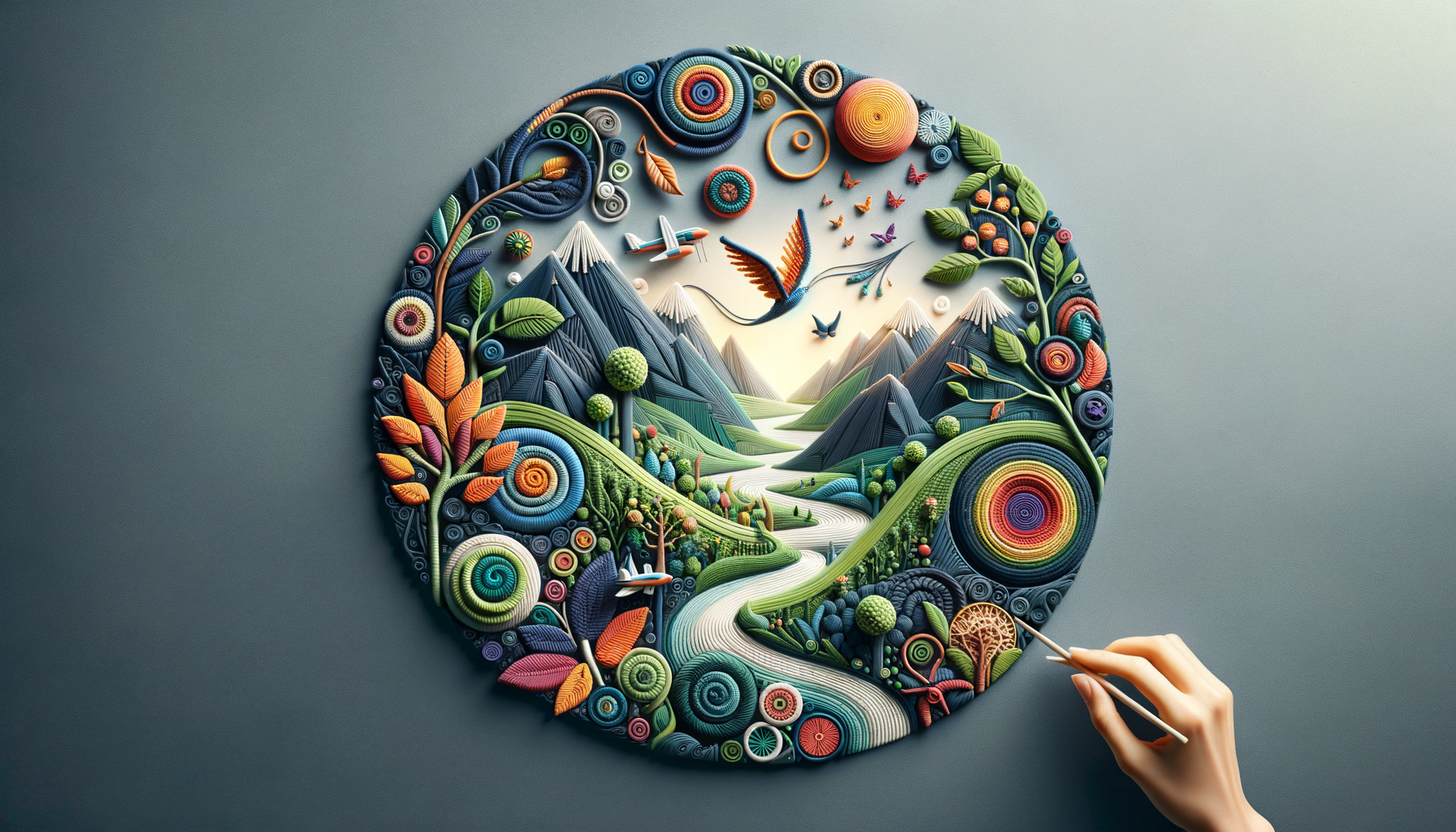Scrolling through Instagram the other day, I stumbled upon a glossy post from a popular influencer. It featured a stack of journals, an antique typewriter, and some steaming tea positioned artfully by a window. Overlaid text read: “Writing is therapy. Writing is joy.” Lovely sentiment, sure, but I couldn’t help but think how this scene would look on my Montana ranch. Replace the typewriter with a battered laptop held together by duct tape, switch the tea for coffee reheated three times, and add a background chorus of horses whinnying because they heard a gate creak open. Writing is rarely this pristine and fuss-free for me.
Yet, I keep at it. Messy or magical, frustrating or freeing, writing is something I’ll never stop doing. It’s as essential to me as breathing (or cowboy boots during mud season). Writing has shaped how I see the world, connect with people, and even how I love. Stick with me—I’m going somewhere with this. Here’s why I write (and keep writing).
Born with Dirt and Stories in My Blood
I come from a place where silence stretches as wide as the Montana sky. Growing up on a ranch outside Bozeman, you didn’t fill that silence lightly. When words were spoken, they had weight. The ranch hands swapped stories of unimpressed stallions and impossible winters. My mom narrated the history of each saddle passed down generations. And my dad? He spun tales so wild I half-thought we’d find Butch Cassidy’s treasure buried out back.
In this corner of the world, storytelling wasn’t just a pastime; it was how we made sense of things. The way my friend’s grandpa could describe a broken fence was as beautiful and charged as a love poem. Writing felt like a natural extension of this oral tradition—a way to transcribe those moments, holding onto them like fireflies in a glass jar.
But writing wasn’t only about preserving history. It was how I started to understand myself. When you’re a teenager riding through sprawling fields or fixing yet another section of busted barbed wire, you have plenty of time to think. Writing became my way of untangling feelings—whether it was figuring out why that cute boy at the rodeo wouldn’t look my way or wrestling with questions about growing up so far from anywhere.
Writing as Survival
Fast-forward to my twenties: I wasn’t riding horses as much anymore. Bozeman turned into Missoula, where I swapped wrangling foals for wrangling assignments during my literature program. There were moments I doubted myself—feeling like the girl in muddy boots trying to compete with big-city dreams and polished prose. But writing grounded me.
I’d type through deadlines and writer’s block, nights so quiet you could hear snow tapping tree limbs outside. When I worked for the state’s fish and wildlife department, I’d jot down ideas on the backs of regulations pamphlets. Like that one time a guy showed up at a camping site and cooked pancakes on a shovel. (I’m telling you: life out here offers endless material.)
Writing was how I adapted to loss, heartache, and change. My first heartbreak—a guy I thought I’d marry but who couldn’t imagine himself tucked into my Montana reality—wrecked me. For weeks, I felt like an old barn collapsing under the weight of too much snow. Then I started to write about it: the way his cologne lingered in my truck for months or how heartbreak felt like a cropping of cheatgrass—sharp, persistent, refusing to let go. It didn’t erase the pain, but writing made it bearable, turning anguish into something tangible.
The Power of Connection (One Sentence at a Time)
When I published my first novel, I hoped readers would enjoy the story, sure. But what I didn’t expect was how deeply it would connect me to strangers. I’d get letters from readers saying things like, “I’ve never been to Montana, but I felt like I was there with you.” One teenage girl wrote about how my protagonist’s muddled journey mirrored her own struggles with belonging.
Here’s the thing: stories invite connection. Much like dating, they’re an offering, a spark that says, “Here’s a bit of who I am. Do you see yourself in this?” Whether you’re sharing a novel, a note scratched on a Post-it, or even a text that risks too much vulnerability—it takes courage to put yourself out there. And when someone responds? Someone says, “Yeah, me too”? That’s magic.
Even as I write this, I imagine you, reader, nodding along—or maybe furrowing your brow, thinking about the dozens of drafts you’ve scrapped. Either way, writing connects us, weaving threads between my Montana living room and wherever you happen to be.
Practical Wisdom from the Page and the Saddle
What I’ve learned from a lifetime of both storytelling and horseback riding is this: messing up is inevitable. Horses will buck mid-gallop. Sentences will fail to land. But you don’t quit because it’s tough. You saddle back up (yes, metaphor intended) and keep going.
Some wisdom, should you care for a pocketful of it:
- Start before you feel ready. Horses bolt, and so do ideas. I’ve learned to write like I’m chasing something before it disappears.
- Be curious. There’s a story in the smallest of things: the shell Midwesterners call "mountain oysters," the kid blowing raspberries during a wedding speech, or why my dog insists on hiding socks in a random corner of the barn.
- Let people in. Stories get richer when you share them. Let someone read your draft. Let someone tell you that no, the ending needs work but your imagery is spot on. It’s much like relationships—they grow through vulnerability.
Writing, Flirting, and Finding the Perfect Word
Here’s where I realize writing has a few things in common with modern romance (besides the fact that so many of us read dating advice while clutching novels). Writing, like dating, is about showing up. It’s messy, nerve-wracking, sometimes complete with wrong turns and cringe-worthy moments—like that line I wrote in college comparing the sunset to a “caramel fireball.” Yikes. But when it works? When you hit the perfect stretch of dialogue, or the person on the other side of your first date laughs and touches your hand? That. That’s why you do it.
You also learn that sometimes stories—or people—don’t show up how you planned. Maybe the love of your life isn’t a cowboy but a bookish city guy who’s terrible with horses but great in a snowstorm. Maybe the story you set out to write twists into something unrecognizable but utterly wonderful. Let the unexpected take you somewhere better.
Why I Keep Writing (and Always Will)
I write because the world is too beautiful, messy, and fleeting not to. Because stories remind me that moments—whether that’s watching the earth exhale in a field of wild mustard or falling for someone who sends you goodnight texts with commas in the right places—are worth holding onto.
Writing lets us preserve memories, embrace chaos, and offer something of ourselves that says, “This mattered. I mattered.” It’s how I process, reflect, and occasionally laugh at myself. And it’s how I know I’ll keep doing this, whether it’s sharing poetry on prairie sunsets or typing this article, coffee-stained and all.
So here’s to telling our stories—unpolished edges and all. Keep writing. Keep living. Your words might just be what someone else is waiting to hear.




















